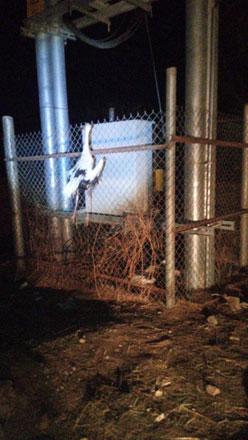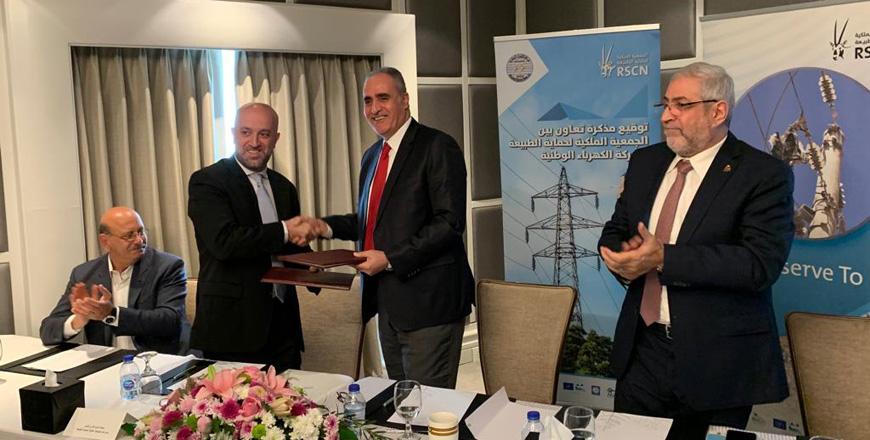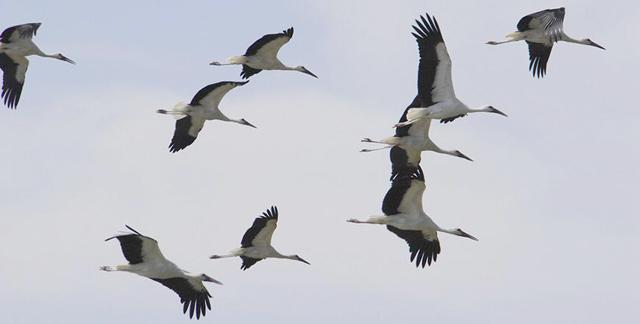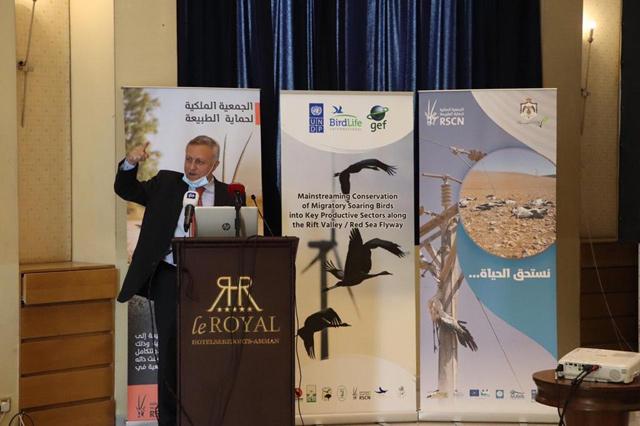You are here
Cables along flyways pose threat to migratory birds
By Bahaa Al Deen Al Nawas - Aug 20,2020 - Last updated at Aug 20,2020

The power went out in Mafraq on Monday when migratory birds landed on power lines and electricity generators, causing disruptions to water distribution in the governorate (Photo courtesy of the RSCN)
AMMAN — The power went out in Mafraq on Monday when migratory birds landed on power lines and electricity generators, causing disruptions to water distribution in the governorate.
On Tuesday, the Royal Society for the Conservation of Nature (RSCN) said that “the incident was not a surprise”, as it had issued several warnings to take preventive measures to protect both the cables and the birds.
In a statement shared with The Jordan Times, the society said that its warnings were based on the possibility of an incident that would damage the national economy as well as migratory birds, “but the warnings did not prompt the concerned entities to take the necessary precautions”.
The RSCN attempted “to find a balance” that avoids economic losses in the sector, due to the social repercussions, and to preserve the birds, which are in danger of extinction, and are considered a national and international heritage, thus preserving Jordan’s reputation as a leading country in the field of protecting nature.
The latest incident in Mafraq caused a power outage in the well-water pumping stations, affecting distribution in the Sarhani area and killing a number of migrating white storks.
The RSCN believes the occurrence to be “alarming”, and that it requires an open discussion to reconsider how the generators and electric cables can be adapted in a way that makes them safer in the future as well as avoiding impacting nature and suffering more financial losses, according to the statement.
The RSCN urged the concerned authorities to boost cooperation to learn the best global practices needed to make the necessary changes.
Director of the RSCN's Bird Project Department Tariq Qaneer said that bare power lines are among the main dangers that threaten birds’ lives on a local and global level, according to the statement.
Qaneer said that the Royal society contacted the concerned authorities regarding the matter “much earlier” than the incident, attempting to prepare the necessary legal framework and executive measures, identifying the areas that pose the danger of electrocuting birds.
He added that the identification was carried out through field scans that began from the south, which detected that Jafer, in the Maan Governorate, is one of the most dangerous areas for migratory birds, and “could potentially kill a lot of birds facing extinction”.
The RSCN contacted Al Akeider Landfill, which implements international projects to improve the site, in cooperation with the United Nations Development Programme (UNDP), and warned them about the dangers of electrocution, Qaneer said.
He also noted that the power lines at the landfill were isolated to avoid incidents.
The statement added that the RSCN referred a memorandum of understanding (MoU) with the Electricity Distribution Company, which highlights the most important measures to prevent the electrocution of birds that leads to power outages, and that it is waiting an official response from the company to sign the MoU and work as per its content.
As part of its efforts as well, the RSCN is currently working on developing national measures on power lines and protecting birds, so as to hold specialised training for their implementation, the statement said.
The RSCN is the national partner to BirdLife International, which contributes to executing global projects in the field of protecting migrating birds, funded by Global Environment Facility and the UNDP, in addition to projects on creating safe routes for migratory birds in the Mediterranean, funded by the Swiss MAVA Foundation and implemented by BirdLife International, the statement concluded.
Related Articles
AMMAN — The Royal Society for the Conservation of Nature (RSCN) on Sunday signed a memorandum of understanding (MoU) with the National Elect
AMMAN — Overhead electrical infrastructure represents a “significant threat” to birds, calling for appropriate precautionary measures, said
AMMAN — The Royal Society for the Conservation of Nature (RSCN) together with the Ministry of Environment on Sunday organised a national dia


















